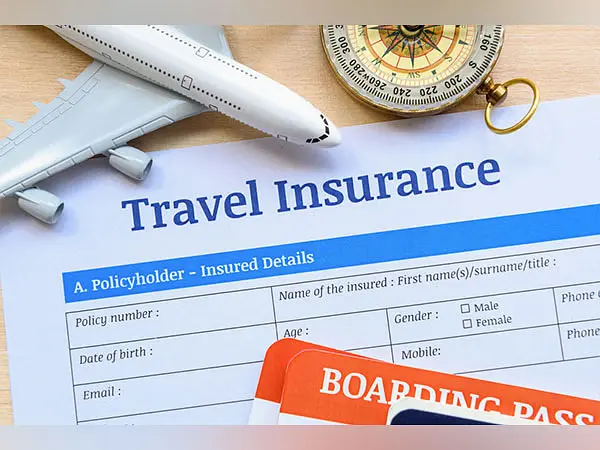Your itinerary is flawless, your bags are packed, and your excitement is through the roof. But what if an unforeseen event—flight cancellation, medical emergency, or lost check-in baggage—throws a wrench in your dream vacation? This is where travel insurance steps in, ensuring your journey remains stress-free.
If you’re an Indian traveller planning to visit any of the 27 Schengen countries, securing Schengen travel insurance is not just a smart move—it’s a mandatory requirement for visa approval. Let’s understand everything you need to know about travel insurance for a Schengen visa.
Why is Travel Insurance Mandatory for a Schengen Visa?
Unlike many other international travel destinations, Schengen countries require visitors to have a minimum travel insurance coverage of €30,000. This ensures that travellers can handle unexpected medical expenses, hospital stays, or emergency evacuations without burdening local healthcare systems. Without proof of a valid Schengen travel insurance policy, your visa application may be rejected.
Key Reasons You Need Travel Insurance for a Schengen Visa:
- Trip Disruptions: Protects against trip cancellations, delays, or interruptions.
- Check-in Baggage & Document Loss: Reimburses expenses in case of lost check-in baggage or stolen passports.
- Legal & Liability Coverage: Covers unforeseen legal liabilities or damages caused by the traveller.
Understanding Schengen Travel Insurance: What’s Covered?
Not all travel insurance policies are created equal. When selecting a policy, ensure it includes the following:
1. Medical Emergency Coverage
Unexpected medical issues can arise at any time. A comprehensive Schengen travel insurance plan should cover the following:
- Hospitalisation and medical expenses
- Emergency medical evacuation
- Repatriation due to illness or accident
- Emergency dental treatment
2. Travel-Related Coverages
A well-rounded travel insurance policy should also include:
- Trip cancellation and interruption (due to illness, natural disasters, or unforeseen events)
- Flight delays and missed connections
- Loss of check-in baggage or delay compensation
- Loss of passport and essential documents
3. Accidental Death & Personal Liability
In unfortunate cases, Schengen travel insurance provides:
- Compensation in case of accidental death
- Legal liability coverage if the traveller unintentionally causes damage to property or injuries to a third party
Types of Schengen Visas & Their Insurance Needs
Before buying travel insurance, it’s essential to determine the type of Schengen visa you require:
1. Short-Stay Visa (Type C)
- Valid for up to 90 days within 180 days.
- Suitable for tourists, business travellers, and family visits.
- Requires Schengen travel insurance with at least €30,000 coverage.
2. Long-Stay Visa (Type D)
- For stays longer than 90 days (work, study, or residency).
- Medical insurance requirements vary based on the host country’s policies.
- Some Schengen nations may require additional healthcare coverage.
How to Choose the Right Schengen Travel Insurance?
When selecting travel insurance for your Schengen visa, keep these factors in mind:
- Check Visa Compliance: Ensure your policy meets the minimum €30,000 coverage required.
- Assess Your Health Needs: If you have pre-existing conditions, look for policies covering medical emergencies arising from them.
- Coverage Duration: Your policy should match the duration of your visa stay.
- Trip Protection Benefits: Choose a plan that includes trip cancellations, lost check-in baggage, and flight delays.
- Reputation of the Insurer: Opt for reliable providers like Bajaj Allianz General Insurance Company with a smooth claim settlement process.
How to Apply for Schengen Visa Travel Insurance?
Applying for Schengen travel insurance is a simple process:
- Compare Policies Online: Use insurer websites or premium calculators to find the best plan.
- Verify Visa Compliance: Ensure the policy meets Schengen visa requirements.
- Purchase the Policy: Complete the online process and receive an e-policy instantly.
- Attach Insurance Proof to Your Visa Application: Submit the insurance certificate along with your visa documents.
Common Mistakes to Avoid When Buying Schengen Travel Insurance
- Opting for Insufficient Coverage: Always meet the €30,000 minimum requirement.
- Ignoring Exclusions: Read policy terms carefully to understand what’s not covered.
- Buying the most Affordable Plan: A lower price often means limited benefits—opt for a balanced plan.
- Delaying the Purchase: Buy travel insurance before applying for your visa to avoid last-minute hassles.
- Forgetting to Carry a Copy: Keep a digital and printed copy of your policy while travelling.
Exploring Europe should be a memorable experience filled with new adventures, scenic landscapes, and cultural wonders. However, the unpredictability of travel means preparing for the unexpected. Investing in Schengen travel insurance provides more than just visa compliance. It protects your health, finances, and peace of mind.
Whether it’s a minor mishap like misplaced check-in luggage or a major emergency requiring medical assistance, having the right travel insurance ensures you enjoy your Schengen adventure worry-free. So before you board your flight, secure a policy that has your back because the best journeys are those where you can focus on the experience, not the worries!
*Standard T&C Apply
**Disclaimer: The content on this page is generic and shared only for informational and explanatory purposes. It is based on several secondary sources on the internet and is subject to changes. Please consult an expert before making any related decisions.
***Insurance is the subject matter of solicitation. For more details on benefits, exclusions, limitations, terms, and conditions, please read the sales brochure/policy wording carefully before concluding a sale.
****Claims are subject to terms and conditions set forth under the travel insurance policy.
Josie Patra is a veteran writer with 21 years of experience. She comes with multiple degrees in literature, computer applications, multimedia design, and management. She delves into a plethora of niches and offers expert guidance on finances, stock market, budgeting, marketing strategies, and such other domains. Josie has also authored books on management, productivity, and digital marketing strategies.


